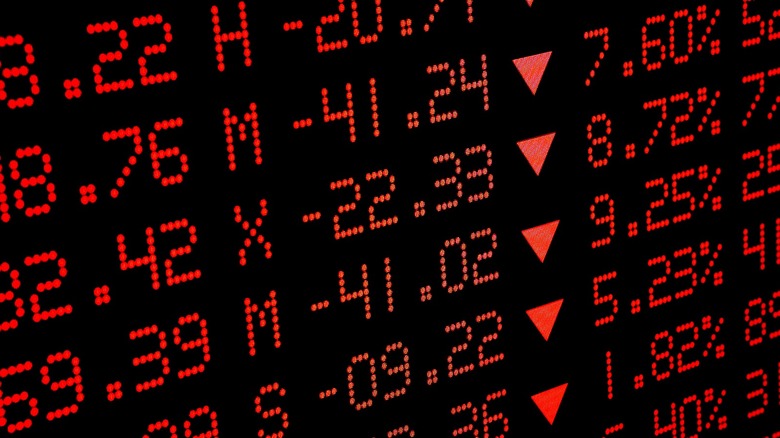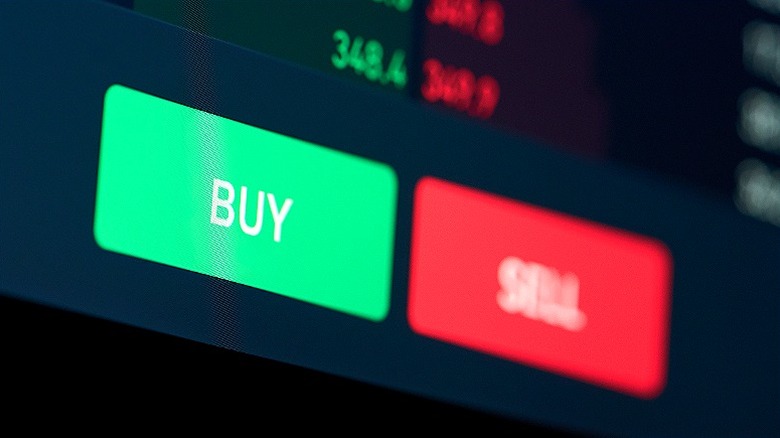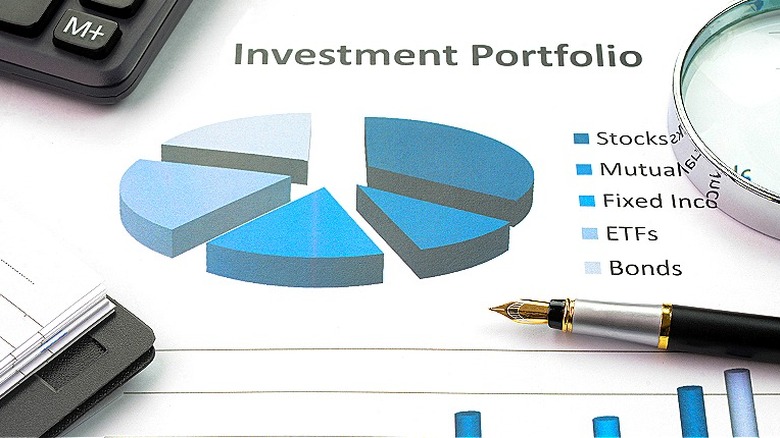Never Do These Things When The Stock Market Is Crashing
A stock market crash can be anxiety-inducing. From knowing what, exactly, caused the market to crash to deciding what to do during and after the market crashes, investors can be overloaded with potential decisions to make. This can often cause investors to panic and/or make decisions that they wouldn't normally make out of fear. Although these decisions are made in the hopes of mitigating further losses, often they can lead to the opposite effect. This is why it can be so important to stay calm during a stock market crash.
Further, it's important to realize that there's no definitive way to predict a stock market crash. With that in mind, certain key indicators (like inflation, the GDP growth rate, and employment numbers, to name a few) can help give a better idea of potential downturns. These can be worth tracking if you find yourself concerned about the possibility of the market crashing. Understanding that volatility and stock market corrections aren't necessarily indicative of imminent crashes can be important to remember as well.
While following things like the VIX Index (which measures market volatility) can be a helpful way to keep apprised of current market sentiment, chances are good that a market crash will happen at some point in your investing lifetime if it hasn't already (the most recent crash occurring in 2020 due to the COVID-19 pandemic). This can make it especially important to know how to handle a market crash, and what specific things to never do during one.
Panic sell
We asked Joe Schmitz Jr., founder and CEO of Peak Retirement Planning what he believed was the absolute worst thing an investor could do during a market crash. "If the market crashes, my number-one tip is don't panic sell. Selling at a low locks in losses, while staying invested lets you benefit from the recovery," he explained. By selling during a downturn, you guarantee your losses whereas waiting can give your portfolio time to recover once the market reaches equilibrium. Schmitz added, "Many investors also make mistakes like trying to time the bottom or checking portfolios constantly, which can lead to emotional decisions." As we've mentioned before, staying calm can be the key to surviving a market crash.
Perhaps one of the most difficult parts of this advice is having to effectively stand still during times of turmoil. However, the best way to ensure a recoup of your losses, and even potentially guarantee more earnings, can be to sit on your investments during a crash — even if that feels like the absolute wrong move to make at the time. Said Schmitz, "The market usually stabilizes with investor buying, and recovery in earnings. Patience really is key, cycles do turn. It's a long-term play."
While this can feel especially difficult for those with a higher risk-adversity, the stock market is ultimately a long-term process that involves natural swings. Keep in mind that while volatility is not necessarily anyone's favorite part of the process, it is a natural part of the market.
Forget the basics
Alongside panic selling, many investors also have a tendency to forget the fundamentals during high-volatility times like market crashes. Aaron Cirksena, financial adviser and founder and CEO of MDRN Capital, explained that some of the worst mistakes that investors can make are rooted in forgetting the basics of investments. Some top mistakes? "Trying to time the market and forgetting to rebalance their portfolios," he warned. While it can be tempting to try and profit off of the market bottoming out, it also comes with increased risk.
Similarly, Cirksena added that investors can often be the cause of their own problems, especially when "they might check their portfolios too frequently, leading to stress and rash decisions." Much like avoiding panic selling, it can be important to stay calm in high-pressure situations, particularly when it comes to the stock market. Constantly monitoring your losses during a market crash can cause an unnecessary amount of stress and concern that could ultimately lead to bad decisions.
As tempting as it is, the smarter move is to avoid excessive portfolio management during a market crash with the understanding that the market will eventually level out, with the potential for gains if you keep your investments as is. Ensuring you revisit your portfolio's past behavior and returns can serve as a good reminder of why you should keep your investments. Lastly, Cirksena warned against a few specific portfolio mistakes investors make during crashes. "Ignoring diversification can be risky, as can selling solid dividend stocks that provide income during downturns," he said.


